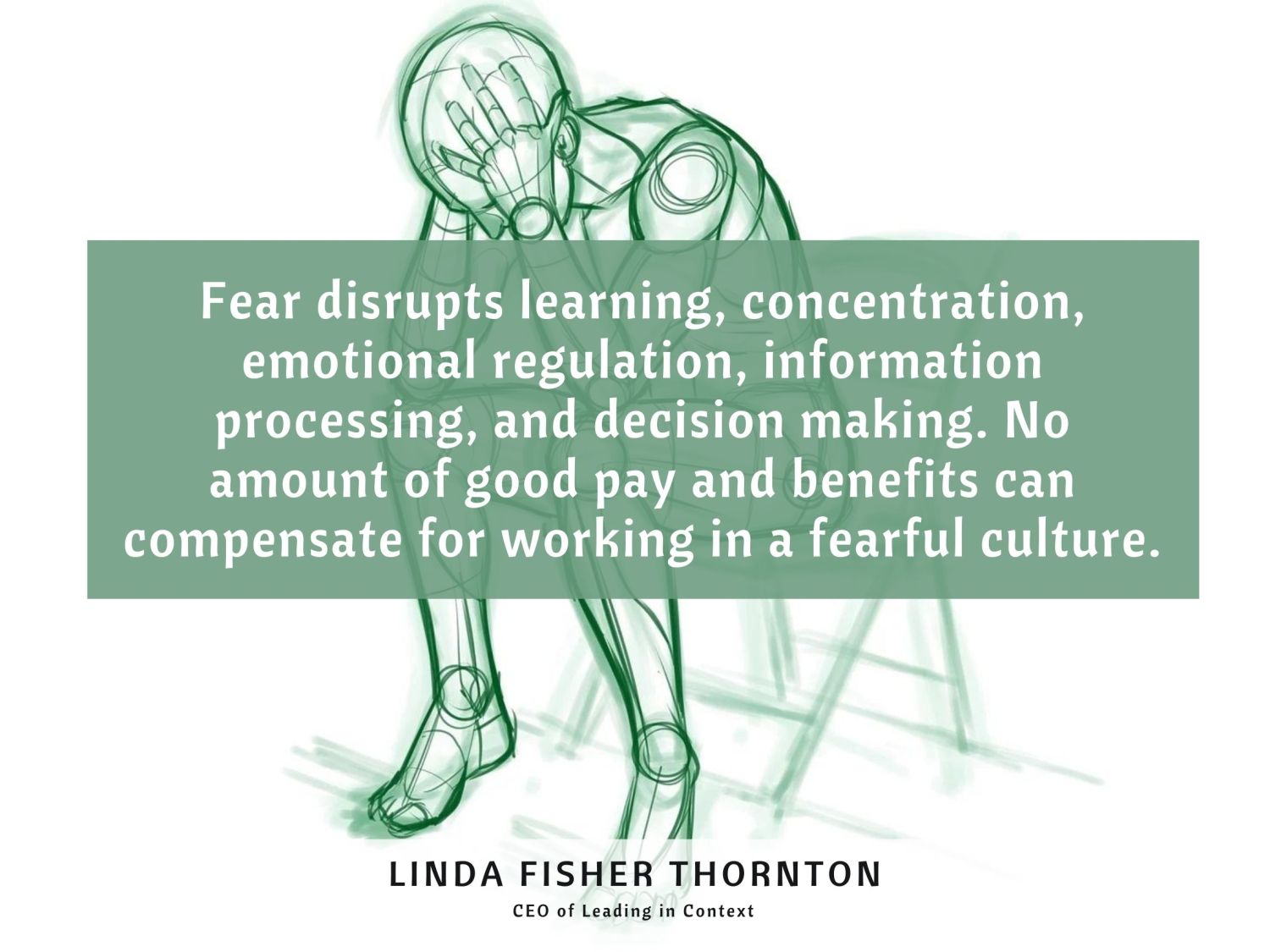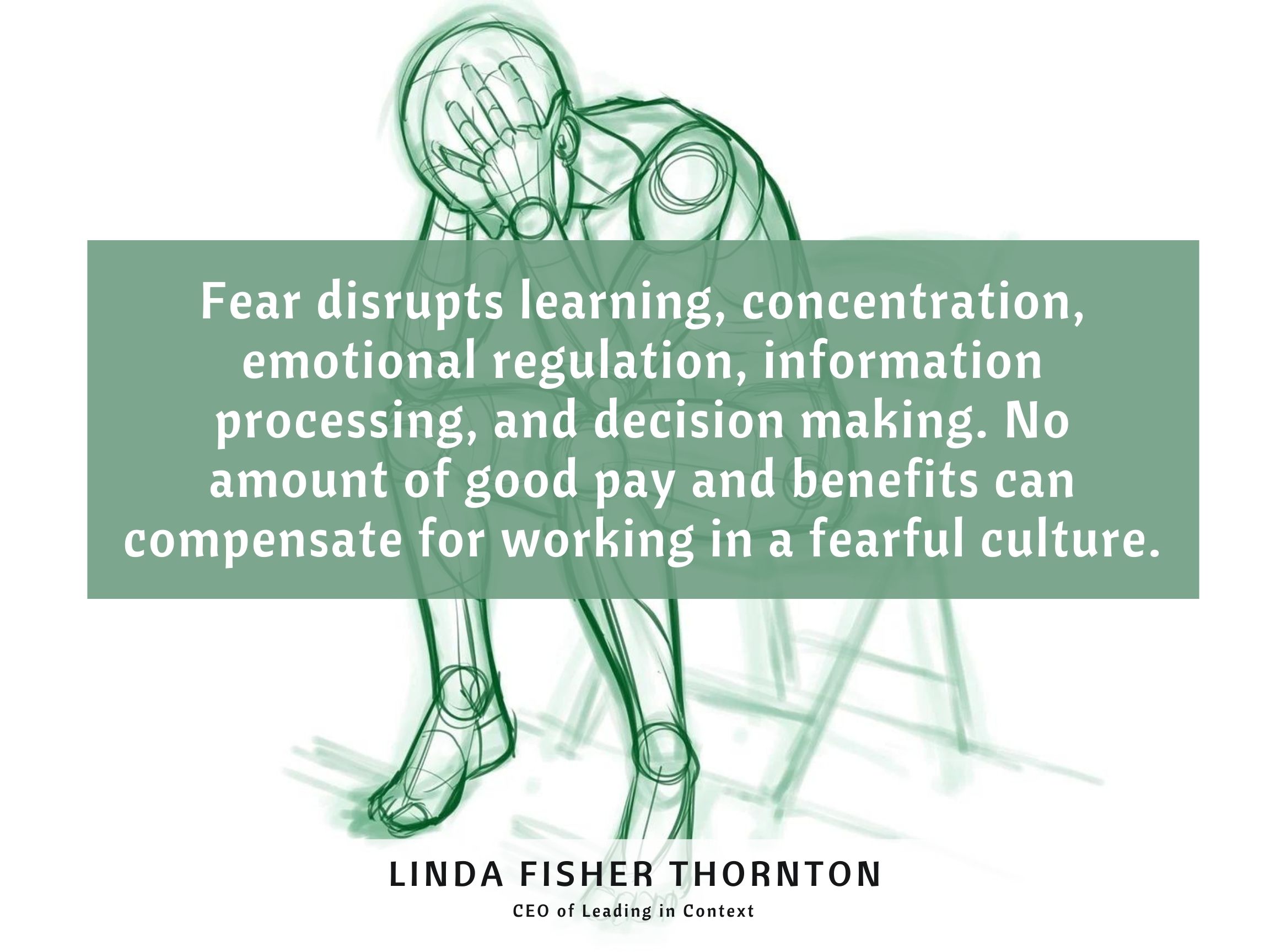
By Linda Fisher Thornton
This post is Part 4 in a series. In Part 1, Part 2, and Part 3 I explored 9 different traits that help you recognize ethical leaders. In Part 4 I will address the importance of leading in ways that eliminate fear.
One of the hallmarks of ethical leadership is that it is a fear-free zone. Fear is insidious. It changes how we see the world and how we treat others. Here are 5 important reasons why fear has no place in our workplaces, our families or our communities:
5 Reasons Fear Has No Place in Leadership
- Fear creates a dampening field that blocks positive interpersonal behavior including respect and care
- Fear-inducing relationships are damaging to human health
- When they are fearful, people spend time trying to protect themselves rather than reaching for their potential, and that reduces job satisfaction and productivity
- The damaged job satisfaction and productivity that are common in fear-based relationships translate into damaged organizational results
- Fear leads to unethical choices about people who are not like us
Fear is the toxic ingredient in many failed leadership strategies. When we’re fearful, we’re not at our best. We’re not thinking clearly. When we’re just trying to protect ourselves, we may quickly “rule out” positive strategies that would help us solve collective problems – including dialogue, cooperation, long-term thinking and listening to understand.
If we think someone or some group is “dangerous” or “harmful,” why would we want to get close enough to understand them?
When we become fearful, we almost automatically shift from considering ourselves and others, to just considering ourselves. We narrow the scope of the respect and care we offer to only those around us who do not elicit our fear response. This kind of reaction is understandable as a natural survival instinct. But is it ethical leadership? No, it’s not.
Ethical Leadership is a fear-free zone.
Great leaders respect others AND differences. If they begin to become fearful of a person or group, they recognize the signs, step back to examine their motives, and shift their thinking. They never compromise respect.

Unleash the Positive Power of Ethical Leadership
© 2009-2023 Leading in Context LLC

1 comment